Since achieving independence from British colonial domination, the Bahamas’ political scene has seen a dramatic transition. Prime Minister Lynden Pindling headed the first post-independence cabinet, ushering in a new era of politics centered on social fairness, economic prosperity, and national identity.
However, challenges and shifts in power would soon emerge, shaping the dynamic and evolving nature of Bahamian democracy. From the rise of competing political parties to the impact of digital platforms and pressing issues like climate change, the changing face of Bahamian politics reflects the nation’s progress and the aspirations of its people.
As the Bahamas navigates its post-independence journey, responsive and accountable leadership will be essential in ensuring inclusive governance and sustainable development for all.
The First Post-Independence Government
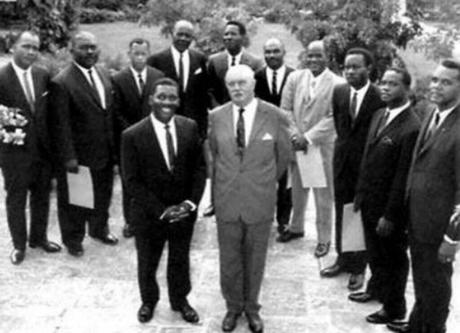
The Bahamas witnessed a substantial upheaval in its political environment after winning independence from British colonial domination. The country’s political course was shaped significantly by the first post-independence government, led by Prime Minister Lynden Pindling. When Pindling’s Progressive Liberal Party (PLP) took office, it implemented a number of policies aimed at fostering social fairness, economic progress, and national identity.
Under the leadership of Pindling, the government focused on strengthening the rights and representation of all Bahamians. For instance, the creation of the Bahamian Nationality Act aimed to grant Bahamians of all races equal citizenship rights. The government also implemented policies to address historical inequalities, such as land redistribution programs and initiatives to promote entrepreneurship among the marginalized communities.
However, the first post-independence government faced challenges as well. The quick rate of change, along with suspicions of corruption and cronyism, alarmed several members of the public. The government’s emphasis on economic growth, critics contended, sometimes came at the price of openness and accountability. These challenges would set the stage for significant shifts in the political landscape of the Bahamas.
Shifts in Political Landscape

In the years following independence, the Bahamas witnessed noteworthy shifts in its political landscape. The two major political parties in the nation, the Progressive Liberal Party (PLP) and the Free National Movement (FNM), emerged as key players in shaping the democratic framework of the nation. These parties presented differing ideologies and policies, offering voters a choice that reflected their diverse interests and concerns.
One significant shift occurred in the 1990s when the Free National Movement, led by Hubert Ingraham, swept into power, ending the long-standing dominance of the Progressive Liberal Party.
Ingraham’s administration focused on economic liberalization, attracting foreign investment, and stimulating tourism and business sectors. This marked a turning point in the political dynamics of the nation and the beginning of a new era of competitive politics.
Furthermore, the advent of alternative political groups like the Democratic National Alliance (DNA) complicated the Bahamian political scene. These parties often presented themselves as alternatives to the established political order, advocating for specific issues and promising a fresh approach to governance.
These shifts in the political landscape reflected the evolving aspirations and priorities of the Bahamian electorate, emphasizing the importance of responsive and accountable leadership.
Recent Political Developments
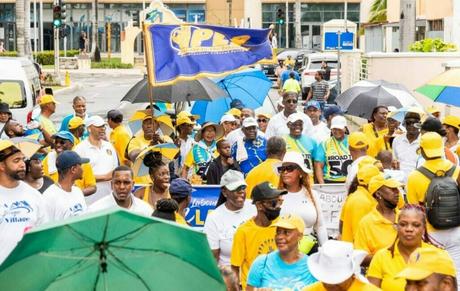
Recent significant political occurrences in the Bahamas continue to have an impact on the political landscape of the nation. The Progressive Liberal Party returned to power in the 2012 general elections, led by Perry Christie. The PLP concentrated on issues like as unemployment, crime, and infrastructure development, which signified a shift in the country’s political direction.
Additionally, the development of social media and digital platforms in the Bahamas has been crucial in influencing political discourse and influencing public opinion. Political parties and candidates have increasingly utilized online platforms to engage with voters, share their agendas, and garner support. The advent of digital campaigning has widened the scope of political participation and reshaped the strategies employed during election campaigns.
Furthermore, in Bahamian politics, there has been an increasing emphasis on problems like as climate change and sustainable development. Due to the Bahamas’ vulnerability to the effects of climate change, including rising sea levels and an increase in the frequency of extreme weather events, these problems are now at the top of the political agenda.
Political leaders and parties are now challenged with developing policies that serve both the current demands of the public and the nation’s long-term survival.
The Bahamas are still navigating their post-independence political path, and the nation’s shifting political landscape reflects both the advancement of society and the ambitions of its citizens. The shifts in political power, the emergence of new parties, and the impact of technological advancements demonstrate the dynamic nature of Bahamian democracy.
The success of Bahamian politics will depend on how well its leaders can respond to the public’s shifting needs and expectations while ensuring inclusive government and sustainable development for everyone.
Economic Policies and Development

Post-independence Bahamas witnessed the implementation of various economic policies and strategies aimed at driving growth, diversification, and sustainability. One key aspect was the emphasis on tourism as a primary driver of the economy. The government recognized the country’s natural beauty and sought to capitalize on it by attracting international visitors.
Efforts were made to develop world-class resorts, enhance tourism infrastructure, and promote the Bahamas as a desirable destination. These actions not only increased economic activity but also led to the creation of employment across a number of sectors, such as hospitality, transportation, and entertainment.
In order to diversify the economy beyond tourism, the administration focused on attracting foreign direct investment (FDI). Policies were put into place to draw capital to sectors including banking, information technology, and renewable energy.
The establishment of financial centers and the promotion of offshore banking further contributed to the economic growth of the Bahamas. The government aspired to establish a robust and resilient economy capable of withstanding external shocks by promoting an environment favourable to investment and company development.
Despite these efforts, challenges remain in ensuring equitable distribution of economic benefits. Income disparities persist, particularly between urban centers and outlying islands, highlighting the need for targeted economic policies to uplift marginalized communities.
Furthermore, the government continues to explore avenues for sustainable development, placing emphasis on renewable energy, environmental conservation, and responsible tourism practices to mitigate the impact on the natural resources that make the Bahamas an attractive destination.
Social Policies and Welfare
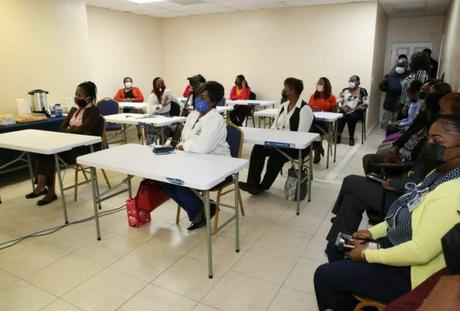
Post-independence Bahamas recognized the importance of social policies and welfare programs in fostering an inclusive society. Access to education and healthcare was improved, particularly in marginalized areas.
The government made investments in the expansion of educational institutions, the improvement of vocational training programs, and the provision of grants and scholarships in order to create fair opportunities for all Bahamians. Additionally, healthcare initiatives aimed to improve infrastructure, expand healthcare services, and provide affordable access to quality medical care across the archipelago.
Housing and urban development were also key areas of focus. Through the development of affordable housing units and the promotion of house ownership efforts, the government undertook measures to solve housing shortages, particularly for low-income families. These efforts aimed to provide stable housing conditions and improve the overall living standards of Bahamians.
Additionally, social safety nets were developed to assist and safeguard weaker populations including the elderly, those with disabilities, and people going through short-term financial hardships. Programs like social security benefits, disability allowances, and unemployment insurance aimed to provide a safety net and alleviate poverty.
While significant progress has been made in social policies and welfare, challenges such as reducing poverty rates, enhancing healthcare accessibility in remote areas, and narrowing educational disparities between urban and rural regions persist. Continued investment and targeted interventions are crucial to ensure that the benefits of social development reach all segments of Bahamian society.
Foreign Relations and Diplomacy
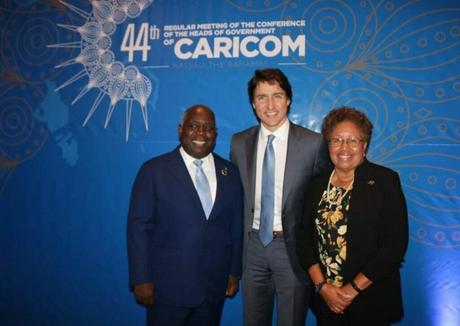
Post-independence Bahamas has actively engaged in foreign relations and diplomacy to strengthen its position on the global stage. The Bahamas, a member of the Commonwealth of Nations, the United Nations, and other regional organizations, has taken part in multilateral forums to address global issues and advance its national interests.
The country has established diplomatic relations with various nations, fostering partnerships for economic cooperation, trade, and cultural exchange. These diplomatic connections have encouraged investment, knowledge transfer, and collaboration in fields such as education, healthcare, and infrastructure development.
The Bahamas has also played a significant role in regional initiatives, particularly within the Caribbean Community (CARICOM). As an active member, it has helped to promote regional integration, address common challenges like climate change and security, and encourage economic cooperation among Caribbean states.
Furthermore, the Bahamas’ geographical location has made it a key player in maritime affairs. The country has participated in talks and agreements about maritime law, marine conservation, and the sustainable use of marine resources. It has actively advocated for the protection of its marine ecosystem and the preservation of its biodiversity.
Foreign relations and diplomacy will continue to shape post-independence Bahamas politics. In order to promote national interests, economic progress, and regional stability, it will be necessary to strengthen connections with current partners, explore new chances for collaboration, and navigate the complexity of global politics.
Youth and Political Engagement
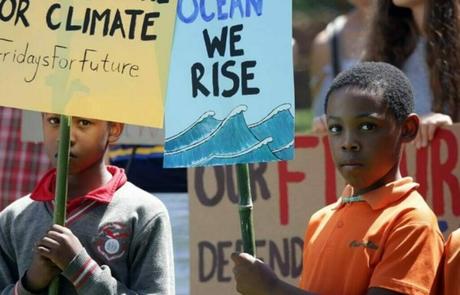
Youth engagement in post-independence Bahamas politics has gained increasing prominence in recent years. Recognizing the significance of the youth demographic, governments have sought to encourage their participation in political processes and decision-making.
Various initiatives have been implemented to empower young Bahamians and amplify their voices in the political arena. Youth-focused organizations, platforms, and forums have been established to provide spaces for dialogue, advocacy, and the exchange of ideas. These forums enable young people to voice their concerns, ambitions, and contribute to the formulation of public policy.
Furthermore, governments have invested in youth leadership development programs, mentorship initiatives, and educational campaigns to foster political awareness and civic participation among the youth. These programs aim to arm young Bahamians with the knowledge, abilities, and self-assurance they need to engage in politics and make informed choices.
Youth-led movements have emerged as powerful agents of change, advocating for social justice, environmental sustainability, and political accountability. Through grassroots activism and digital platforms, young activists have raised awareness about pressing issues, mobilized communities, and influenced the political discourse in the Bahamas.
The inclusion of youth perspectives in post-independence politics is essential for ensuring a vibrant and responsive democracy. Continued efforts to promote youth engagement, address their concerns, and provide meaningful avenues for participation will contribute to the development of a more inclusive and representative political system in the Bahamas.
Challenges
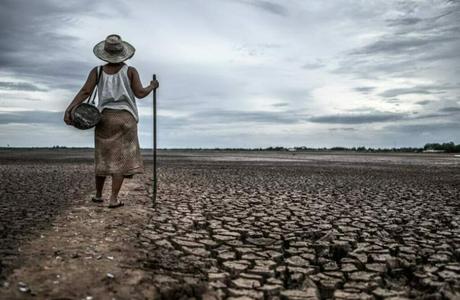
Post-independence Bahamas politics faces several challenges that shape its trajectory and influence the future of the nation. These challenges include:
- Corruption and Transparency: Addressing corruption and enhancing transparency in governance remain ongoing challenges. Ensuring accountability and combating corrupt practices within political institutions are crucial for fostering public trust and confidence in the political system.
- Socio-Economic Inequalities: Despite progress, addressing socio-economic inequalities and disparities remains a significant challenge. Building a more equitable society requires bridging the urban-rural gap, reducing economic inequality, and ensuring that all people have equal access to high-quality healthcare, education, and work opportunities.
- Climate Change and Resilience: A serious issue is the Bahamas’ susceptibility to the impacts of climate change. Threats to infrastructure, the environment, and the economy are posed by rising sea levels, an increase in hurricane frequency, and other climate-related catastrophes. To secure the future of the country, it is essential to create solutions for climate resilience, sustainable development, and adaptation.
- Political Divisions and Polarization: Managing political divisions and polarization is important for fostering a cohesive and inclusive political environment. Promoting dialogue, tolerance, and respect for diverse perspectives can contribute to a more constructive and harmonious political discourse.
- Youth Empowerment and Participation: While efforts have been made to engage youth in politics, ensuring sustained youth empowerment and participation remains a challenge. Creating opportunities for meaningful engagement, addressing their specific concerns, and integrating their voices into decision-making processes are vital for shaping a vibrant and inclusive political landscape.
Future Outlook

Despite the challenges, the future of post-independence Bahamas politics holds potential for progress and positive change. Here are some key aspects that shape the future outlook:
- Strengthening Institutions: Enhancing the capacity, efficiency, and independence of political institutions can promote good governance and accountability. Building a robust and stable democratic system requires ongoing efforts to combat corruption, increase openness, and uphold the rule of law.
- Sustainable Development: Emphasizing sustainable development principles can pave the way for a resilient and environmentally conscious Bahamas. Balancing economic growth and environmental conservation, supporting renewable energy sources, and incorporating sustainability into laws and practices will all help to ensure a more sustainable future.
- Regional and International Cooperation: Active participation in regional and international forums may facilitate cooperation, information exchange, and collective action. Working together with neighboring nations and global partners can address common challenges, foster economic cooperation, and amplify the Bahamas’ voice on global issues.
- Youth Leadership and Innovation: Nurturing youth leadership, innovation, and entrepreneurship can drive positive change and shape the future of the Bahamas. Young people’s active engagement in politics, support for their innovative ideas, and platforms for their voices to be heard will all help create a vibrant and dynamic political landscape.
- Inclusive Governance and Representation: A successful democracy requires the inclusion and representation of all parts of society. Promoting gender equality, diversity, and inclusion in politics may result in more thorough decision-making procedures and laws that reflect the needs and aspirations of the whole populace.
By addressing these challenges and capitalizing on future opportunities, post-independence Bahamas politics can strive towards a future marked by sustainable development, social progress, and inclusive governance.
Environmental Challenges

With its extensive coastline and diverse marine biodiversity, the Bahamas faces a number of environmental concerns that need careful attention and aggressive actions. Rising sea levels endanger low-lying regions and coastal populations, rendering them vulnerable to floods and erosion.
The increased frequency and intensity of hurricanes, which may wreak serious damage to infrastructure and ecosystems, exacerbates these consequences. The natural ecosystems and ecological balance of the area are also under risk due to the degradation of coral reefs, mangroves, and seagrass beds.
Additionally, biodiversity loss and the introduction of invasive species further strain the delicate ecosystems of the Bahamas. In order to mitigate the consequences of climate change and preserve the nation’s unique natural resources, there must be concerted measures.
Environmental Policies and Conservation Initiative

Recognizing the importance of environmental conservation, post-independence Bahamas has implemented various policies and initiatives to safeguard its natural heritage. The government has designated protected areas, including national parks and marine reserves, to preserve the pristine habitats and unique biodiversity of the Bahamas. These areas act as refuges for threatened species, migratory bird nesting sites, and marine life spawning grounds.
Moreover, the Bahamas has collaborated with international organizations and neighboring countries to address transboundary environmental issues and promote regional conservation efforts. Such collaborations aim to protect shared ecosystems, strengthen scientific research, and foster knowledge exchange in the field of environmental management. In addition to protected areas, sustainable tourism practices have been a focal point in environmental policies.
The government has pushed tourist companies to embrace eco-friendly methods such as decreasing waste, saving water and electricity, and fostering appropriate wildlife interactions. By implementing guidelines and certification programs, the Bahamas strives to ensure that tourism contributes to environmental conservation while providing economic benefits to local communities.
Overall, the environmental policies and conservation initiatives undertaken by post-independence Bahamas reflect a commitment to preserving its natural resources and mitigating the impact of human activities on the environment.
Continued efforts, however, are required to meet the problems posed by climate change, habitat loss, and biodiversity degradation. Continued collaboration with international partners, community engagement, and scientific research will be vital in maintaining the ecological integrity of the Bahamas for future generations.
FAQ
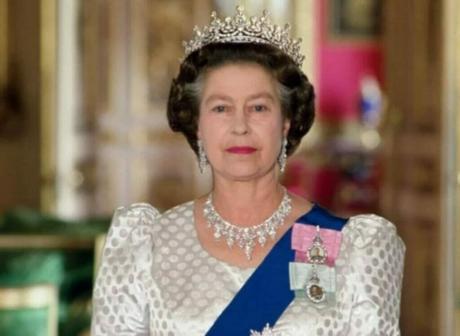
What Is The Political Situation In The Bahamas?
The Bahamas is a parliamentary democracy with a constitutional monarchy. Queen Elizabeth II is the head of state and is represented by a Governor-General in a Westminster-style government. The Progressive Liberal Party (PLP) and the Free National Movement (FNM) are the two largest political parties in the multi-party system of the nation. General elections are held every five years, and the party having the most representatives in the House of Assembly forms the government. The political landscape is characterized by a competitive electoral environment, peaceful transitions of power, and a commitment to democratic principles.
What Form Of Government Was Proposed For The New Colony In The Bahamas?
For the new colony in the Bahamas, a form of government known as a parliamentary democracy was proposed. This system combines elements of monarchy and democracy with a constitutional monarchy headed by a king and a parliamentary system where elected officials make decisions and govern the nation. The proposed form of government aimed to ensure a balance of authority between the executive, legislative, and judicial branches while fostering democratic participation and accountability.
Is The Bahamas A Republic Or Democracy?
The Bahamas is a democracy with a constitutional monarchy. It is not a republic. As a democracy, the Bahamas upholds the principles of popular sovereignty, according to which the people are given political authority via free and fair elections. The democratic structure of the country comprises constitutional requirements, separation of powers, and human rights respect. The queen, presently Queen Elizabeth II, serves as the ceremonial head of state, while elected officials and a parliamentary system rule the country on a daily basis.

